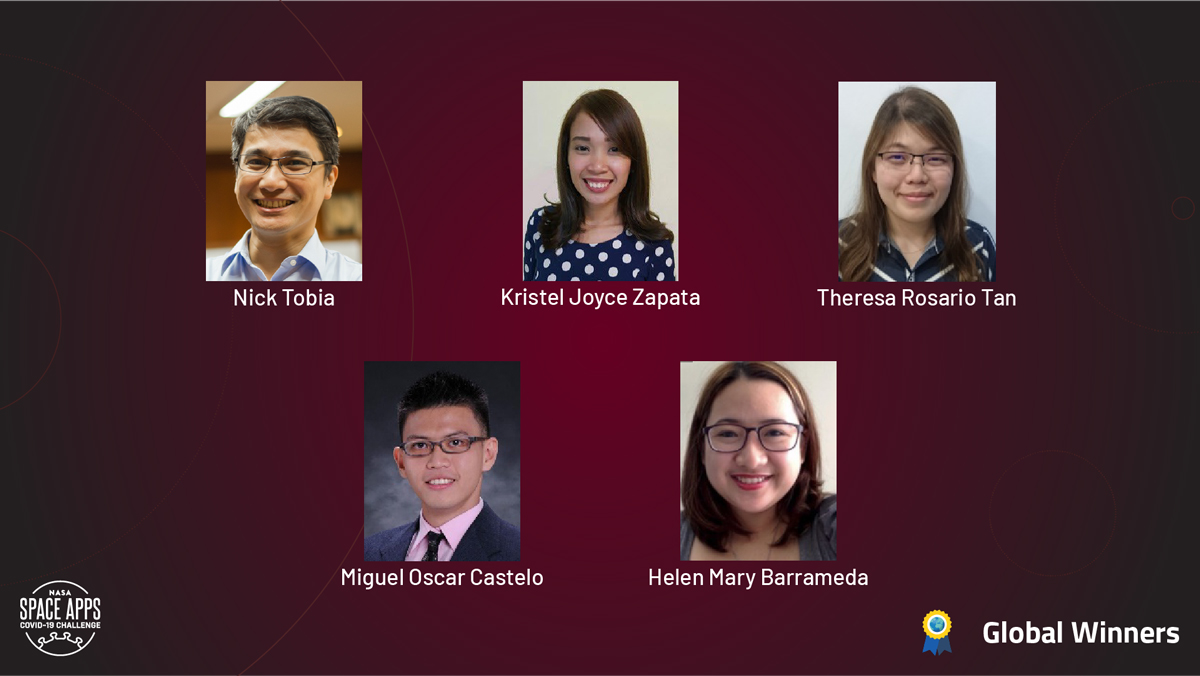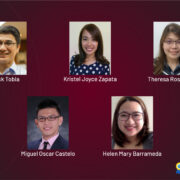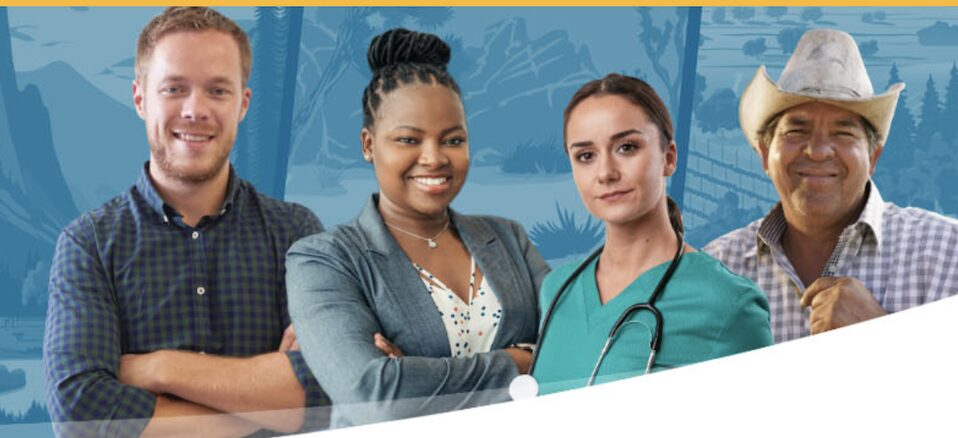
An app for pc developed by a group of Filipinos that measures the impact of the coronavirus is the winner of NASA’s Space Apps COVID-19 Challenge.
Data analysts Nick Tobia, Helen Mary Barrameda, Kristel Joyce Zapata, Theresa Rosario Tan and Miguel Oscar Castelo from CirroLytix created a dashboard for public policymakers and economic planners to measure the impact of COVID-19 on various countries and the virus’ effect on economic and environmental terms.
“GIDEON,” which stands for Global Impact Detection from Emitted Light, Onset of Covid-19, and Nitrogen Dioxide, was created using Earth observation, in-country economic and human mobility data, and global infection case counts.
It uses news feeds, Google mobility data and coronavirus cases to reveal the multidimensional impact of lockdowns and other interventions.
Night lights from the Visible Infrared Imaging Radiometer Suite (VIIRS) and nitrogen dioxide levels from Sentinel-5P show current impacts as well as forecast effects of lockdowns.
Meanwhile, Google’s community mobility reports, global infection data from Johns Hopkins University and nitrogen dioxide data reveal pollution levels produced by human activity and monitor which countries keep air quality under control as they bounce back from lockdowns and into the “new normal.”
Two other Filipino teams were also chosen as global finalists.
“Snail Space” — a wordplay for snail’s pace — is an app developed by Arturo Caronongan III, Kevin Olanday, In Yong Lee, Mary Anne Dominique Casacop and Gabriel Santiago from De La Salle University to provide mental care and comfort during times of social isolation brought by COVID-19 pandemic.
“Sentinellium,” on the other hand, is an app that leverages user data sent through SMS and chat, and space assets like population density, urbanization, and aerosol to provide a more accurate prediction of developing epidemics. It was developed by Harlee Quizzagan, James Andrew C. Cornes, Angela Chua, Alaica Mariño, Joal Rose Lin, and Mohammad Ashraful Mobin, who formed their group during the “hackathon” period.
“The use of these modern and advanced technologies will be crucial, especially as the world navigates the fourth industrial revolution. Using big data, cloud and AI (artificial intelligence) applications, for instance, could help us understand the severity of the disease and aid in delivering measures to mitigate its impact,” said Trade Undersecretary for Competitiveness and Innovation Dr. Rafaelita Aldaba.
“This really fills me with great optimism that our young and talented startups and Filipinos have so much to offer and contribute to our efforts to provide solutions to address health and economic crisis,” she added.
In May, the United States space agency National Aeronautics and Space Administration (NASA), along with the European Space Agency, Japan Aerospace Exploration Agency, National Center for Space Studies of France, and Canadian Space Agency invited coders, entrepreneurs, scientists, designers, storytellers, makers, builders, artists, and technologists to participate in a virtual hackathon dedicated to putting open data to work in developing solutions to issues related to the COVID-19 pandemic.
During a period of 48 hours, more than 15,000 participants from 150 countries created more than 2,000 virtual teams.
“There’s a tremendous need for our community’s ingenuity right now. I can’t imagine a more worthy cause than COVID-19 to direct the energy and enthusiasm that always generates such amazing solutions through the Space Apps Challenge,” said Dr. Thomas Zurbuchen, NASA’s Associate Administrator for the Science Mission Directorate.
The Space Apps COVID-19 Challenge is a special edition of NASA’s annual Space Apps Challenge, an international hackathon that takes place in cities around the world. It is a NASA-led initiative organized in collaboration with Booz Allen Hamilton, Mindgrub and SecondMuse.





